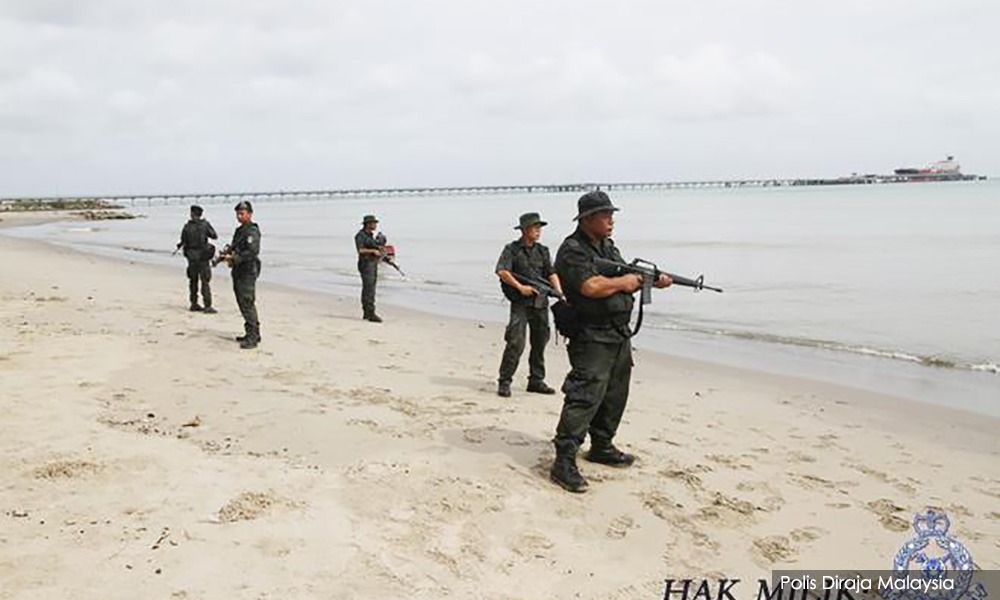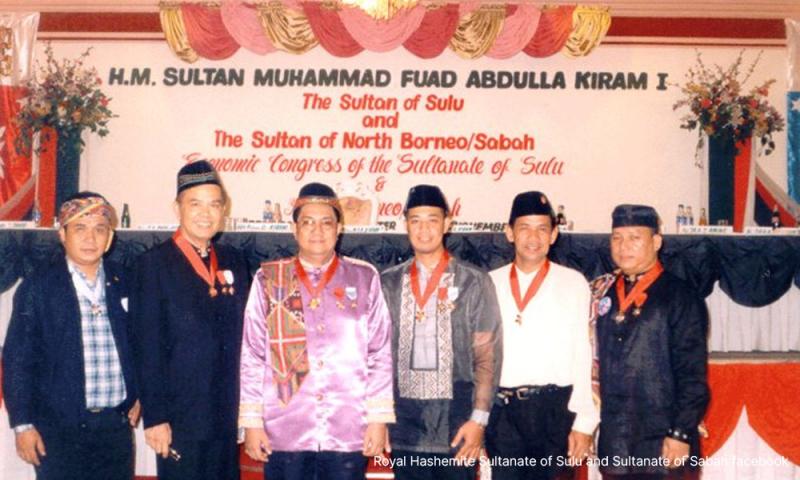MP SPEAKS | Sulu award or Sulu fraud?
MP SPEAKS | The case against Malaysia by the self-proclaimed heirs of the so-called Sulu sultan involving a US$14.9 billion (RM62.59 billion) award is ongoing, and defending Malaysia’s sovereignty in court through legal means is one part of the battle.
The other is to properly understand the arbitral processes and history that lend to the complexity of this case which is why I am glad that the International Arbitration Colloquium 2023 themed “State Sovereignty and Immunity in Commercial Arbitration” was held in the past week.
This colloquium could not have been more timely. The three sessions explored three critical angles of the case - historical, sovereign immunity, and the arbitral process.
The first session outlined the history of North Borneo (now, Sabah) and the relevant historical evidence about the case. The historical understanding of Sabah throughout different occupations to where it now stands, as part of Malaysia, was pertinent to understanding how and why this case came about, and why the Sulu claimants believed they could claim parts of Sabah.
The second session discussed the effects of the New York Convention and Sovereign Immunity, while the third session was a discussion of the abuse of the arbitral process. All speakers and panelists at the colloquium are esteemed experts in their respective fields.
The colloquium, as I mentioned in the opening address, is not the government of Malaysia’s response to the ongoing Sulu case. Instead, it was curated to gather the foremost thinkers and experts to examine various interesting yet intricate issues brought upon by the Sulu case.
It is clear, from what I gather from experts in the field of law and history, that this case is no doubt highly complex and multi-textured.
The basis of the self-proclaimed Sulu heirs is the 1878 agreement in which the then-Sulu sultan consented to permanently grant and cede his territory in North Borneo (today’s Sabah) to Overbeck and Dent (Overbeck was the then Maharaja of Sabah and Rajah of Gaya and Sandakan, and the brothers Dent were merchants and entrepreneurs) with an annual cession payment of 5,000 dollars, and consequently, an additional 300 dollars in the 1903 Confirmation of Cession.
While that may be the case, I would like to make clear that the 1878 Treaty must not be taken as the sole primary source in the present dispute. A myriad of other evidence exists, which ought to be taken into consideration in assessing the development of the present claim.
Furthermore, I wish to emphasise that the use of both the 1878 agreement and the 1903 Confirmation of Cession to pursue the case through arbitral means is without basis and deceptive.
To put it simply, to pursue arbitration, there must be an arbitral clause (in other words, a private dispute resolution procedure) in the initial agreement.
This means that all parties to the agreement would have to agree that in the case of a dispute, arbitration would be the means of resolving the matter. Yet, this was never the case in the 1878 agreement and the 1903 Confirmation of Cession.

No arbitration clause
Roger Chin, president of the Sabah Law Society, has termed the use of an arbitration process in the case of the Sulu claimants, as “weaponising” the arbitral process, which I agree with, as no arbitration clause exists in the 1878 agreement nor the 1903 agreement, which is why there is simply no grounds for arbitration.
In fact, modern-day arbitration was non-existent in 1878. Even if there was any arbitration inferred in the documents, there is the question of validity to consider.
To add to this, the Sulu heirs are not able to show any proprietary rights on any part of Sabah.
Chin cannot be more accurate in describing the claims made against Malaysia as a blatant abuse of arbitration.
Malaysia is a sovereign state. By choosing the 1878 agreement as the cornerstone of their case, the Sulu claimants have instigated an aggressive claim on Malaysian assets beyond parts of Sabah.
They have attempted to seize Malaysian assets in France and Luxembourg, but these efforts have either been unsuccessful or have been stayed. This includes attempts in Paris to seize the embassy premise.
However, the claimants’ approaches were irregular and did not follow established legal conventions. They have also gone so far as to try to aim for Petronas, which is a separate entity from the government of Malaysia.
Like many Malaysians, I find this very unsettling and an opportunity for us to immediately put into place safeguards against future frivolous claims from other parties.
I believe that a State Immunity Act will be a beneficial preventive measure to protect the country from any possible inappropriate foreign claims in the future.
A State Immunity Act, which protects a state from being subject to the jurisdiction of other states, and would prevent any judgment or award against its assets, once put in place, will act as a preventive measure to safeguard Malaysia’s sovereignty from future spurious claims.
At the moment, Malaysia does not have a State Immunity Act and it is in the proposal stage.
My view, from research and what I gather from the distinguished experts at the colloquium, is that many historical facts have been neglected to conveniently skew the narrative of certain parties.
The Cobbold Commission of Enquiry in 1962 is a key part of history that should not be neglected. Sabahans who then were under British rule, chose to join the then Federation of Malaysia.
They were not colonised but rather chose to join Malaysia. Similarly, the land of Sabah and all its parts was not bought by the government of Malaysia, nor was it sold to the government of Malaysia.
Malaysia has done no wrong in the Sulu case. These individuals, claiming to be heirs of the so-called Sulu sultan, are only able to pursue this case financed by an opportunistic litigation fund, “Therium”, that operates to profit on the success of a case they’ve invested in.
Litigation funders like Therium function to provide financing to litigants who most often, do not have the financial resources to pursue a case. In the Sulu case, this includes paying for the lawyers acting on the case for the Sulu claimants.
Malaysia is a sovereign state that has not waived its sovereign immunity at any point in the purported arbitration. Malaysia will also not be held to ransom.
The Sulu case is an important case that I hope Malaysia will never have to encounter again. At the same time, the silver lining is that it allows us to explore the history and legal processes surrounding this matter to take precautionary measures to safeguard Malaysia.
Furthermore, it signals to us that more than ever, we need to be united as a nation and maintain political stability.
I believe that political stability is the key element to “Brick Wall” any potential legal claims and processes in the international realm against Malaysia.
There are many questions that are still unanswered in the Sulu case. This so-called ad hoc “arbitration” with the issuance of a purported “final award” to an amount of nearly US$15 billion is the second largest international arbitration case against a state.
Hence my question - is this a legitimate Sulu award or is it a Sulu fraud?
As the government of Malaysia continues to actively litigate across Europe to ensure that the award is overturned, I stand by the promise of the government of Malaysia to all Malaysians to fight to the end in defending Malaysia’s sovereignty against any frivolous claims that threaten the nation.
I encourage all Malaysians to visit the website set up by the government for more information on the Sulu case here.
Information on the International Arbitration Colloquium 2023: State Sovereignty and Immunity in Commercial Arbitration can be found here and to access the full recording of the colloquium, go here.
AZALINA OTHMAN SAID is Pengerang MP and Minister in the Prime Minister’s Department (Law and Institutional Reform).
The views expressed here are those of the author/contributor and do not necessarily represent the views of Malaysiakini.
RM12.50 / month
- Unlimited access to award-winning journalism
- Comment and share your opinions on all our articles
- Gift interesting stories to your friends
- Tax deductable
